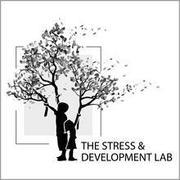
A recent paper from the Stress and Development lab, published in Nature Communications, raises questions about existing research on "normal" brain development. Most studies of brain development in children have been comprised of samples that look very different than the United States population in terms of race, ethnicity, parental education, and family income. Specifically, most children in these studies come from families that have greater levels of education and income than children in the U.S. overall, and they are more likely to be White. The study suggests that this may be skewing our understanding of what "normal" brain development looks like. The study demonstrates that the development of many brain areas occurs earlier if the sample includes children who more closely resemble the U.S. population in terms of race, ethnicity, and socio-economic status. We hope these findings will encourage neuroscience researchers to recruit more diverse samples and consider the impact that biased sampling might have on our understanding of how the brain develops.
Read the NPR summary of the study here: Studies Skewed By Focus On Well-Off, Educated Brains
You can also read more about the paper here: Brain Imaging Results Skewed by Biased Study Samples
The paper was also featured in a Medical Express post here: Brain Imaging Results Skewed by Biased Study Samples
Read the entire paper here: Sample composition alters associations between age and brain structure
